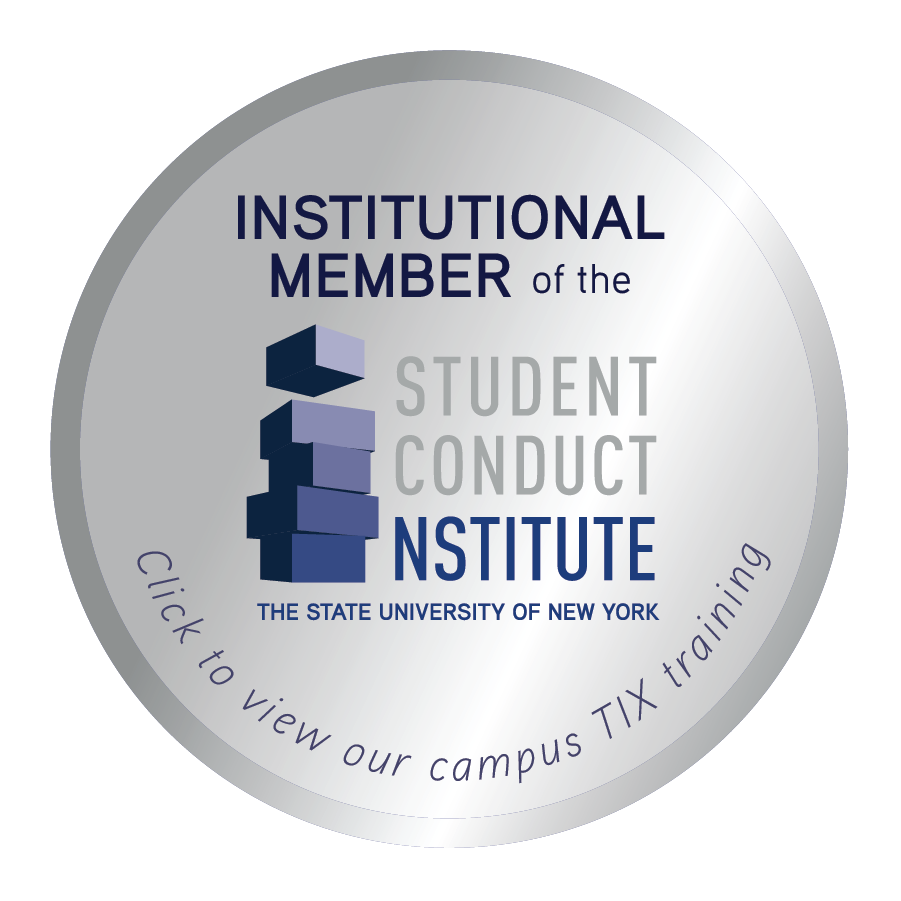All members of the College community are prohibited from engaging in sexual harassment and retaliating against individuals based on their participation in a sexual harassment investigation. When they learn about incidents of sexual harassment, College employees who are supervisors must take prompt remedial action to respond to any concerns including referring the matter to relevant internal options.
Community members are protected from sexual misconduct regardless of their sex, sexual orientation, immigration status, citizenship status or national origin, or any other protected characteristic.
Title IX Grievance Policy
Title IX of the Educational Amendments of 1972 prohibits any person in the United States from being discriminated against on the basis of sex in seeking access to any educational program or activity receiving federal financial assistance. The U.S. Department of Education, which enforces Title IX, has long defined the meaning of Title IX’s prohibition on sex discrimination broadly to include various forms of sexual harassment and sexual violence that interfere with a student’s ability to equally access our educational programs and opportunities.
On May 19, 2020, the U.S. Department of Education issued a Final Rule under Title IX of the Education Amendments of 1972 that:
- Defines the meaning of “sexual harassment” (including forms of sex-based violence)
- Addresses how this institution must respond to reports of misconduct falling within that definition of sexual harassment, and
- Mandates a grievance process that this institution must follow to comply with the law in these specific covered cases before issuing a disciplinary sanction against a person accused of sexual harassment.
In recent years, “Title IX” cases have become a short-hand for any campus disciplinary process involving sex discrimination, including those arising from sexual harassment and sexual assault. But under the Final Rule, The College of Westchester must narrow both the geographic scope of its authority to act under Title IX and the types of “sexual harassment” that it must subject to its Title IX investigation and adjudication process. Only incidents falling within the Final Rule’s definition of sexual harassment will be investigated and, if appropriate, brought to a live hearing through the Title IX Grievance Policy.
Policy Against Sexual Harassment and Sexual Misconduct (that follows outside of the scope of the Title IX Final Rule)
The College of Westchester remains committed to addressing any violations of its policies, even those not meeting the narrow standards defined under the Title IX Final Rule. Specifically, our campus has a Code of Conduct that defines certain behavior as a violation of campus policy and a separate Policy Against Sexual Harassment and Sexual Misconduct that addresses the types of sex-based offenses constituting a violation of campus policy, and the procedures for investigating and adjudicating those sex-based offenses.
To the extent that alleged misconduct falls outside the Title IX Grievance Policy, or misconduct falling outside the Title IX Grievance Policy is discovered in the course of investigating covered Title IX misconduct, the institution retains authority to investigate and adjudicate the allegations under the policies and procedures defined within the Policy Against Sexual Misconduct and Sexual Harassment Not Covered by Title IX and Code of Conduct, as applicable, through a separate grievance proceeding.

